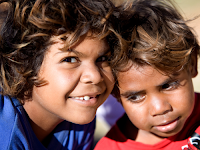How do you help young children develop and sustain healthy habits of thinking? By having fun
of course! Learning is a serious business and it’s important to have some
serious fun on our learning journey.
Children learn our
behaviour, interpret the messages they receive, and process information
accordingly. They construct their
own set of rules, belief system that will guide them in the choices they make.
These can be by and large helpful or unhelpful, rational or irrational.
Give it at try banana
pie! There’s more to this than meets the eye!
We want our children to develop the capacity to take on tasks with a view to do their best and to hang in there when the going gets tough. This is the ‘if it’s to be it’s up to me’ idea that helps the individual to complete tasks and build on self-confidence. Here are some ideas for teachers and parents/carers to use.
When children are
working say:
‘You are giving it a try banana pie! (thumbs up gesture)
‘You are giving it a try banana pie! (thumbs up gesture)
When the task is complete
say:
‘You gave it a try banana pie!' accompanied by a thumbs up gesture and a highly animated facial expression (more exaggerated the better!)
‘You gave it a try banana pie!' accompanied by a thumbs up gesture and a highly animated facial expression (more exaggerated the better!)
When talking to a
group before starting a task say:
When you are doing
something separate from the group say out loud:
‘I can’t do it this. It is too hard!’ and the children will say ‘Give it a try banana pie! ‘Thanks kids you helped me to keep going!’ you reply.
‘I can’t do it this. It is too hard!’ and the children will say ‘Give it a try banana pie! ‘Thanks kids you helped me to keep going!’ you reply.
At the end of the day
say to the children, ‘we did lots of stuff today and even when things didn’t go
our way what did we do?’ And you will hear them say in unison:
‘We gave it a try banana pie!’
And what will we do
tomorrow? Guess what they say?
The above is teaching
the children some valuable ideas and competencies in a seriously fun way such as:
Hard work pays off in the end.
‘Giving up stops me doing things.’
The more things I do and finish the more I believe I can achieve my
goals.’ (Confidence
‘I can fail but I’m not a failure.
Everyone can do different things and they have unique qualities.’
‘We are all good a lots of different things.’
Give It a Try Banana Pie!
Some things are easy
Some things are hard
But I will always try!
When things get tough
I will say
‘Give it a try banana pie!’
The ideas outlined in this blog are contained in the Early Childhood program 'Have a Go Spaghettio!' a resilience building program based on Rational Emotive Behaviour Education. Max and Sam always 'Give it a try banana pie!"



Comments
Post a Comment